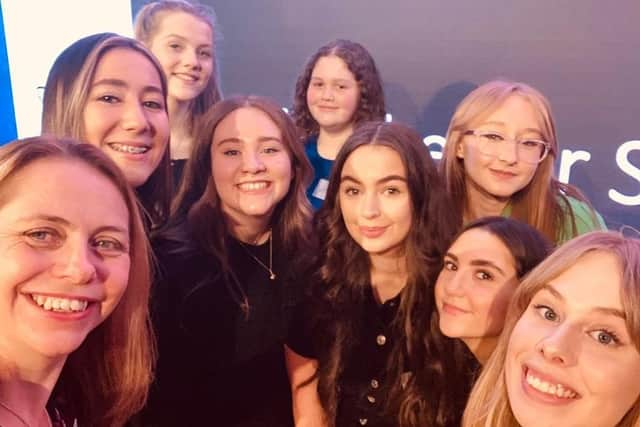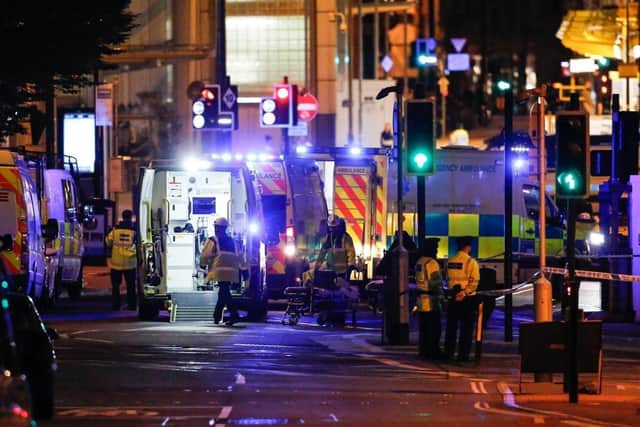Lancaster lecturer whose life ‘changed forever’ on night of Manchester Arena bombing helps launch online survey to give survivors a voice
and live on Freeview channel 276
Dr Cath Hill is working with nine young survivors of the attack and the National Emergencies Trust to help young people affected by terrorism long-term.
And today, Monday, they have launched an online survey which invites children and young people to share their experiences of the support they received since 2017 to identify what will be most effective to future young survivors of terror.
Advertisement
Hide AdAdvertisement
Hide AdThe survey forms part of Bee The Difference, a unique new research project giving young people affected by the attack a platform to voice their experiences for the first time and a chance to create better outcomes for future young survivors.
Bee The Difference is a collaboration between nine young survivors from the Manchester attack, UK disaster response charity, the National Emergencies Trust, and researchers from Lancaster University.
Lead researcher Dr Hill is a lecturer in social work, co-founder of the Manchester Survivors Choir and a member of the National Emergencies Trust’s Survivors Forum.
She was at the Ariana Grande concert on May 22 2017 with her son Jake, who was 10 at the time, when 22 people died after a suicide terrorist blew himself up as concertgoers left the venue.
Advertisement
Hide AdAdvertisement
Hide AdIt was Jake’s first ever live gig. He is now 15 and recovering well from the traumatic experience. He has since been to a concert, although not at Manchester Arena.


Dr Hill said: “I know through my experience with the choir that young people affected by the Manchester attack have sought support in a range of places - their GP, counsellors, teachers, social groups and social media.
“Some of this was incredibly helpful, some of it missed the mark completely, while some measures taken inadvertently introduced more trauma.
"Five years on it’s time to start to talk about this and make sure young people who experience similar events in the future get the best possible care.”
Advertisement
Hide AdAdvertisement
Hide AdEllie Taylor, one of the young survivors who has designed the research project, was 15 when she was caught up in the attack.


She said: “Bee The Difference is a chance to take something that changed our lives completely in a negative way and turn it into something positive for the future.
"The questionnaire isn’t invasive. It’s not about your personal story and what you went through. It’s just a few questions to find out what worked mentally for you, and what didn’t help, so we can find out what needs to happen in the future.”
Ava Turner, another of the project’s designers, was just 10 when she was traumatised by the attack.